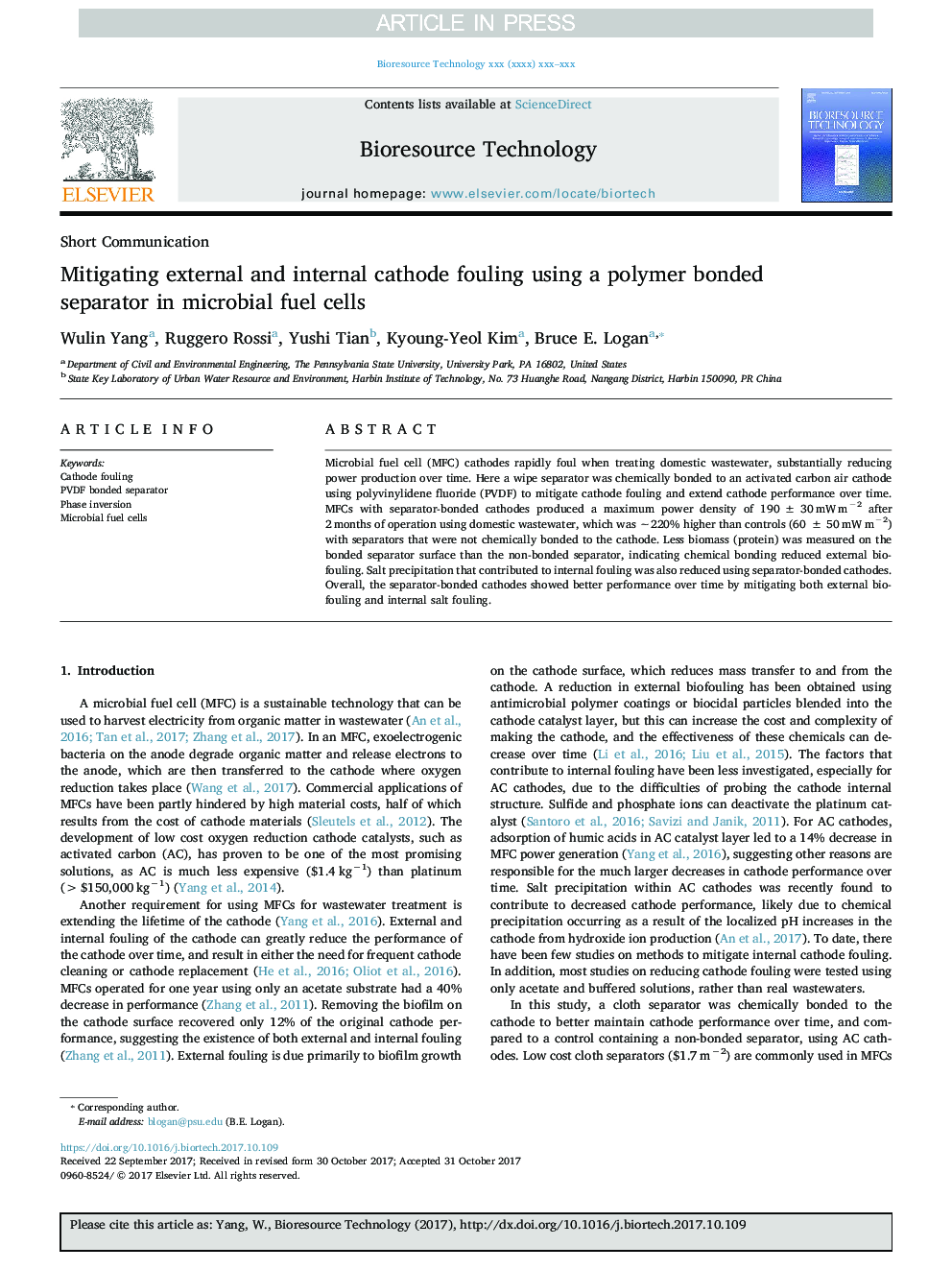| Article ID | Journal | Published Year | Pages | File Type |
|---|---|---|---|---|
| 7068958 | Bioresource Technology | 2018 | 5 Pages |
Abstract
Microbial fuel cell (MFC) cathodes rapidly foul when treating domestic wastewater, substantially reducing power production over time. Here a wipe separator was chemically bonded to an activated carbon air cathode using polyvinylidene fluoride (PVDF) to mitigate cathode fouling and extend cathode performance over time. MFCs with separator-bonded cathodes produced a maximum power density of 190â¯Â±â¯30â¯mWâ¯mâ2 after 2â¯months of operation using domestic wastewater, which was â¼220% higher than controls (60â¯Â±â¯50â¯mWâ¯mâ2) with separators that were not chemically bonded to the cathode. Less biomass (protein) was measured on the bonded separator surface than the non-bonded separator, indicating chemical bonding reduced external bio-fouling. Salt precipitation that contributed to internal fouling was also reduced using separator-bonded cathodes. Overall, the separator-bonded cathodes showed better performance over time by mitigating both external bio-fouling and internal salt fouling.
Keywords
Related Topics
Physical Sciences and Engineering
Chemical Engineering
Process Chemistry and Technology
Authors
Wulin Yang, Ruggero Rossi, Yushi Tian, Kyoung-Yeol Kim, Bruce E. Logan,
